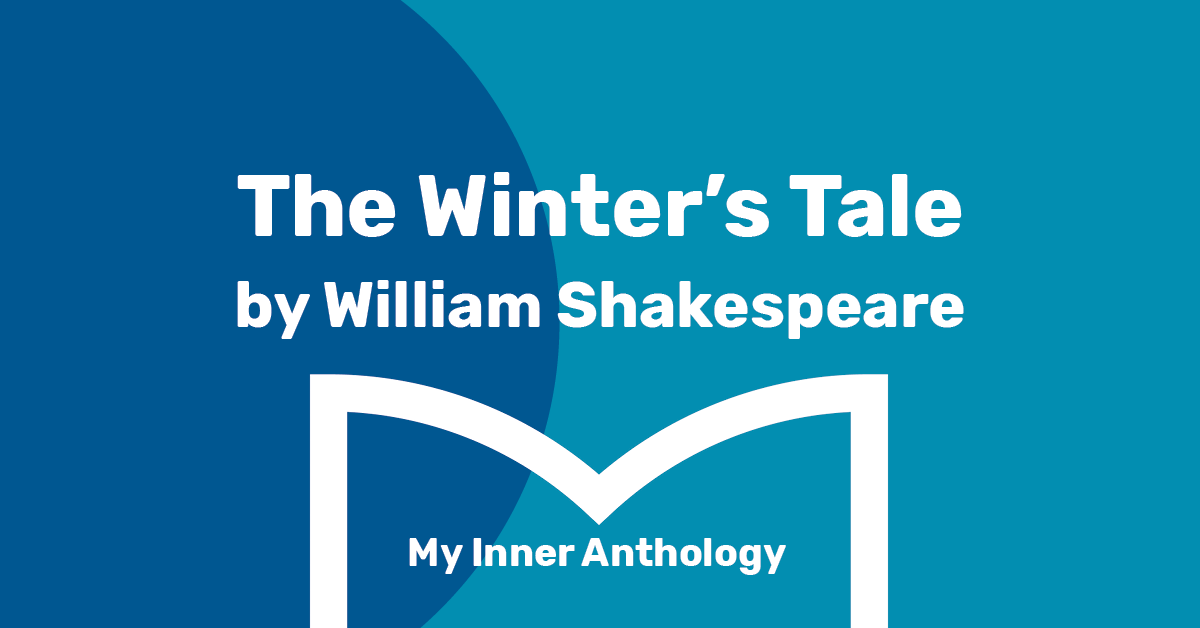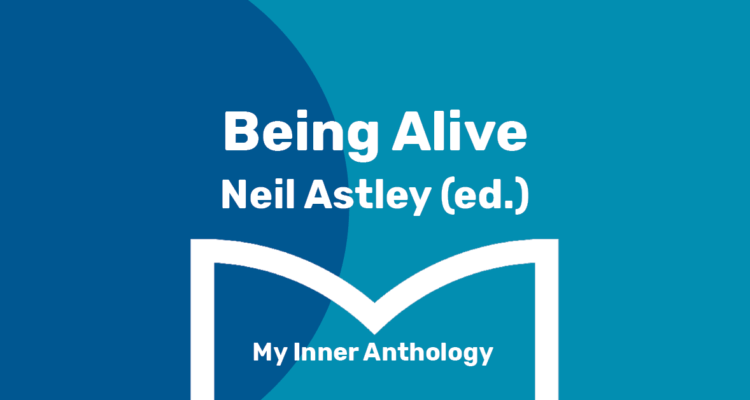My Inner Anthology: The Winter’s Tale by William Shakespeare
Frances Macmillan, Editor of The Reader Magazine, shares something from her Inner Anthology today, The Winter's Tale by William Shakespeare. The theme for our daily readings in December is 'Winter Warmth' download the calendar here.

While I was at university I did a bit of (bad) amateur acting and during my first year I was in a production of The Winter’s Tale playing 1st Servant and a shepherdess with a (bad) West Country accent. My performance aside, I loved being part of a cast and a theatrical production and I went to so many rehearsals that much of the script became hardwired in my memory, familiar to this day, lines recurring unbidden at odd moments. Despite the familiarity, there are certain scenes that still retain their power to shock me, or at least make me tense with expectation. Scenes of a woman standing alone on the stage, seeking to make a miracle happen with words alone.
One of these is the courtroom scene, when a queen, Hermione, stands accused of treachery and adultery. There is no evidence behind the accusations, which come solely from her husband the king Leontes, who is in a blind, terrible, temporary madness, and is about to lose everything he holds dear. Hermione makes her self-defence in a series of speeches, usually aimed directly at Leontes, her sole accuser and judge and the only person who can pardon her.
Since what I am to say must be but that
Which contradicts my accusation and
The testimony on my part no other
But what comes from myself, it shall scarce boot me
To say 'not guilty:' mine integrity
Being counted falsehood, shall, as I express it,
Be so received. But thus: if powers divine
Behold our human actions, as they do,
I doubt not then but innocence shall make
False accusation blush and tyranny
Tremble at patience. You, my lord, best know,
Who least will seem to do so, my past life
Hath been as continent, as chaste, as true,
As I am now unhappy; which is more
Than history can pattern, though devised
And play'd to take spectators. For behold me
A fellow of the royal bed, which owe
A moiety of the throne, a great king's daughter,
The mother to a hopeful prince - here standing
To prate and talk for life and honour 'fore
Who please to come and hear. For life, I prize it
As I weigh grief, which I would spare: for honour,
'Tis a derivative from me to mine,
And only that I stand for. I appeal
To your own conscience, sir, before Polixenes
Came to your court, how I was in your grace,
How merited to be so; since he came,
With what encounter so uncurrent I
Have strain'd to appear thus: if one jot beyond
The bound of honour, or in act or will
That way inclining, harden'd be the hearts
Of all that hear me, and my near'st of kin
Cry fie upon my grave!
LEONTES
I ne'er heard yet
That any of these bolder vices wanted
Less impudence to gainsay what they did
Than to perform it first.
HERMIONE
That's true enough;
Though 'tis a saying, sir, not due to me.
This, and her subsequent exchange with Leontes, is measured, careful, compassionate even while outraged, so full of dignity even while it is full of misery. She seems so utterly sane, it is like she is on a different plane from Leontes. I thought of this scene a lot while watching coverage of the US election – against chaos, power and suspicion, reason and sense and truthfulness seem to have no traction. And indeed, Hermione, already in despair, eventually stops arguing: ‘You speak a language that I understand not.’
It is left to Paulina, Hermione’s friend, to find a language, brutal, frank and relentless, that will get through to Leontes. For sixteen years after this terrible court scene, when at last Leontes is brought to his senses by the sudden death of his young son, Paulina makes him face the hard reality of what his madness wrought. Her words have the power to ‘strike’ him now.
PAULINA
If, one by one, you wedded all the world,
Or from the all that are took something good,
To make a perfect woman, she you kill'd
Would be unparallel'd.
LEONTES
I think so. Kill'd!
She I kill'd! I did so: but thou strikest me
Sorely, to say I did; it is as bitter
Upon thy tongue as in my thought: now, good now,
Say so but seldom.
In the last scene of the play, the same plain-speaking Paulina must, with words alone, make a stone statue of Hermione come to life.
PAULINA
It is required
You do awake your faith. Then all stand still;
Or those that think it is unlawful business
I am about, let them depart.
LEONTES
Proceed:
No foot shall stir.
PAULINA
Music, awake her; strike!
Music
'Tis time; descend; be stone no more; approach;
Strike all that look upon with marvel. Come,
I'll fill your grave up: stir, nay, come away,
Bequeath to death your numbness, for from him
Dear life redeems you. You perceive she stirs:
HERMIONE comes down
I love this scene, though I don’t know what to make of it. Whether or not you believe Hermione was really a statue or this was a piece of elaborate theatre, whenever I see it performed it feels full of magic and longing. If only this could be possible. All those commands that Paulina gives - descend, be stone no more, approach, strike, come, stir, come away – she is coaxing, willing movement into the statue. I don’t know if even she knows what is about to happen. What is required, in the end, is not reasoned sanity, but faith.
Share
Related Articles

My Inner Anthology: As You Like It by William Shakespeare
Reader Leader, Lizzie, recommends As You Like It by William Shakespeare. In May the theme for our Daily Readings is inspired by The…

My Inner Anthology: The Living Mountain by Nan Shepherd
Teaching and Learning Coordinator, Lisa Spurgin, recommends The Living Mountain by Nan Shepherd. In May the theme for our Daily Readings is…

My Inner Anthology: Being Alive – Neil Astley (ed.)
Reader Leader Lizzie, recommends and reads from 'Being Alive' - Neil Astley (ed.). In May the theme for our Daily…


